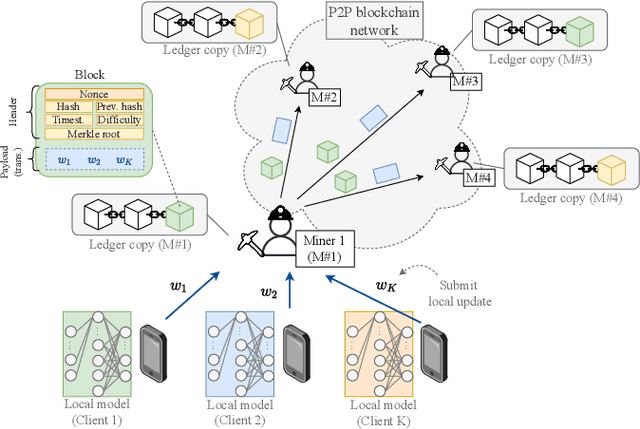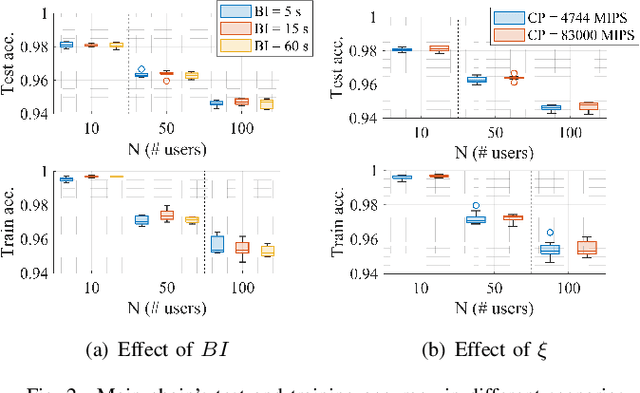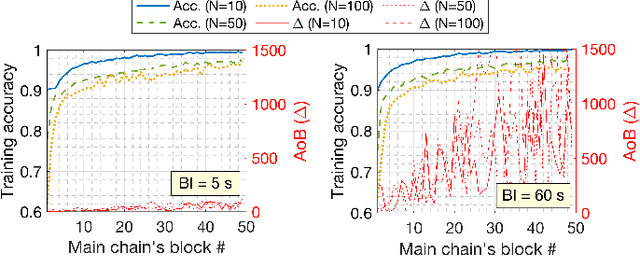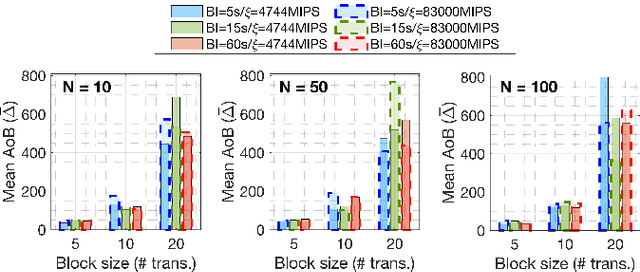On the Decentralization of Blockchain-enabled Asynchronous Federated Learning
Paper and Code
May 20, 2022



Federated learning (FL), thanks in part to the emergence of the edge computing paradigm, is expected to enable true real-time applications in production environments. However, its original dependence on a central server for orchestration raises several concerns in terms of security, privacy, and scalability. To solve some of these worries, blockchain technology is expected to bring decentralization, robustness, and enhanced trust to FL. The empowerment of FL through blockchain (also referred to as FLchain), however, has some implications in terms of ledger inconsistencies and age of information (AoI), which are naturally inherited from the blockchain's fully decentralized operation. Such issues stem from the fact that, given the temporary ledger versions in the blockchain, FL devices may use different models for training, and that, given the asynchronicity of the FL operation, stale local updates (computed using outdated models) may be generated. In this paper, we shed light on the implications of the FLchain setting and study the effect that both the AoI and ledger inconsistencies have on the FL performance. To that end, we provide a faithful simulation tool that allows capturing the decentralized and asynchronous nature of the FLchain operation.
 Add to Chrome
Add to Chrome Add to Firefox
Add to Firefox Add to Edge
Add to Edge